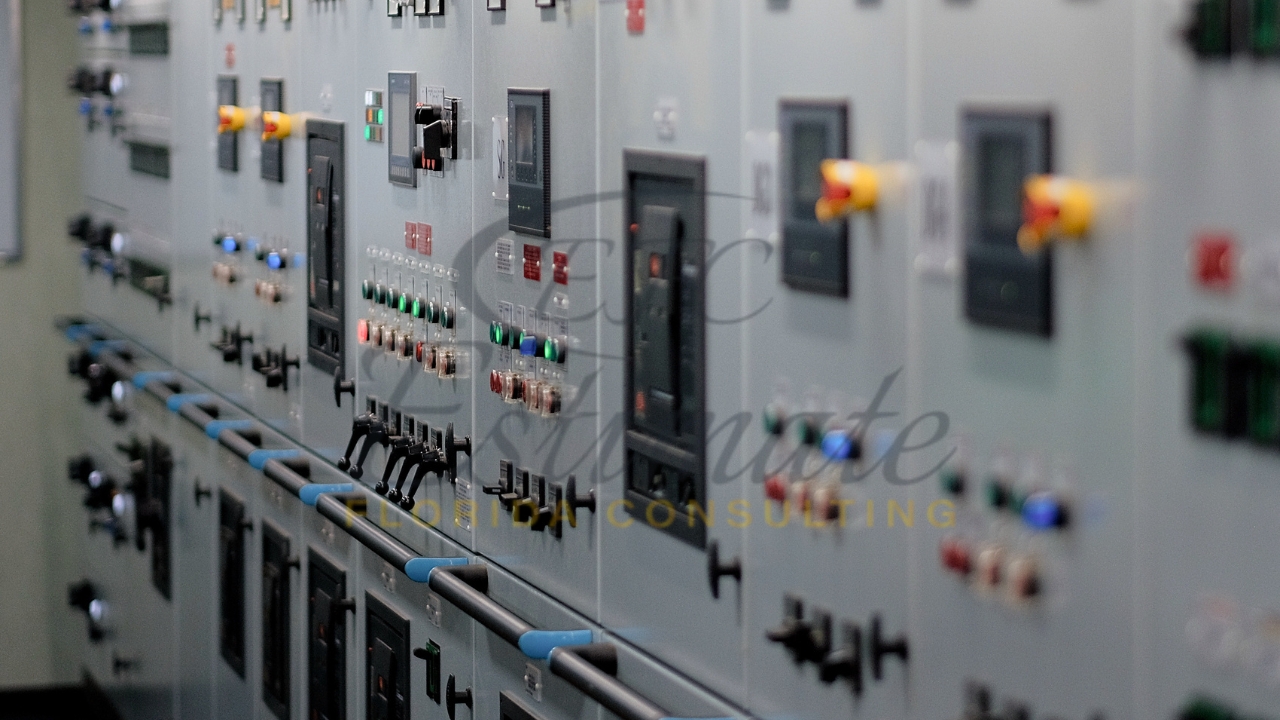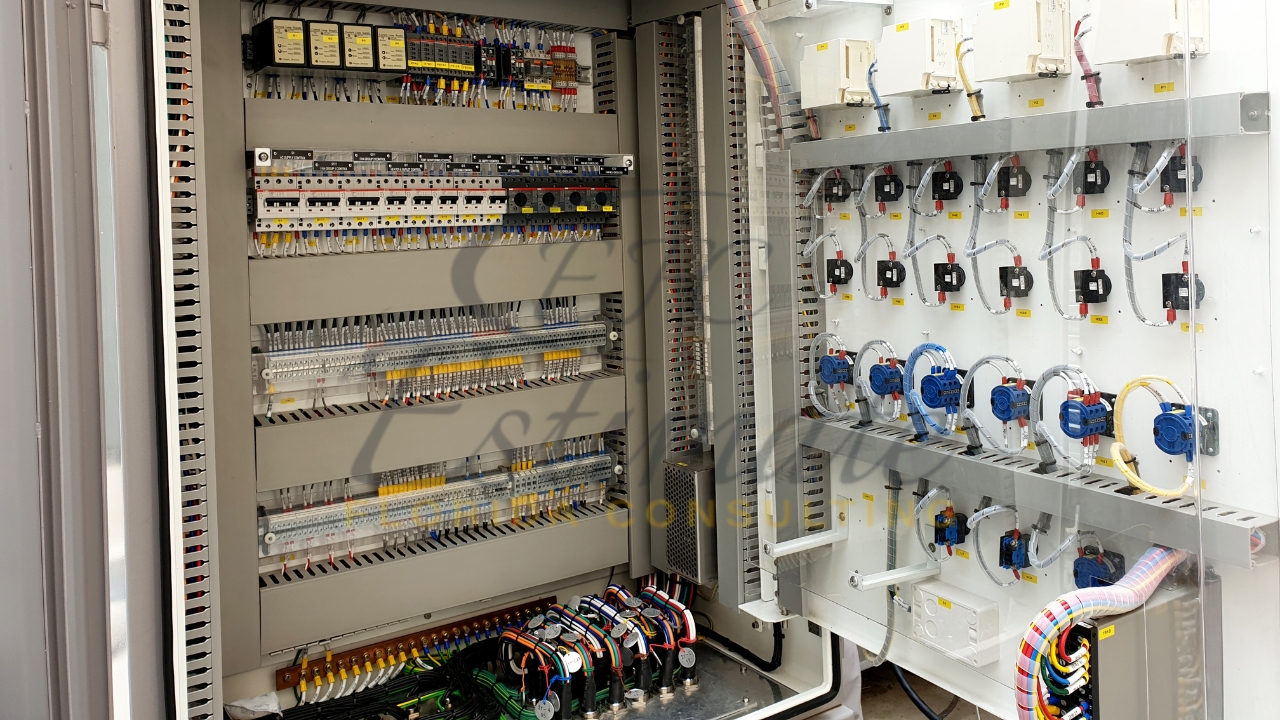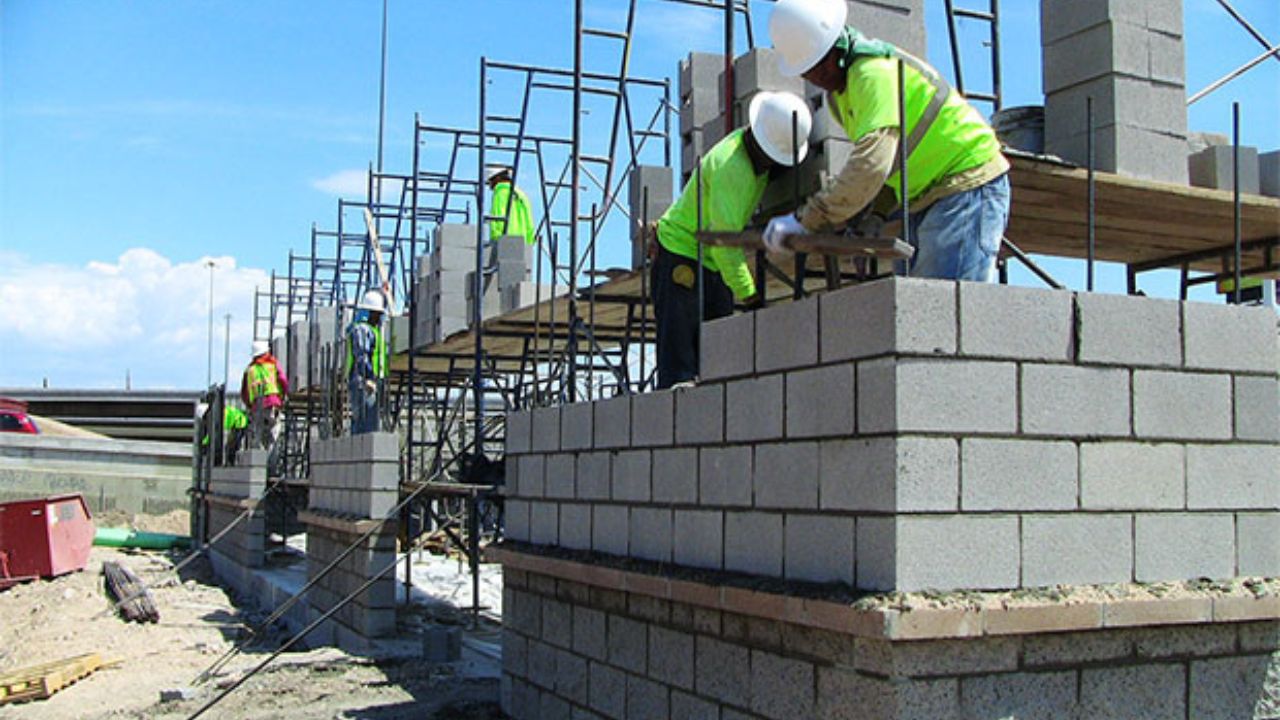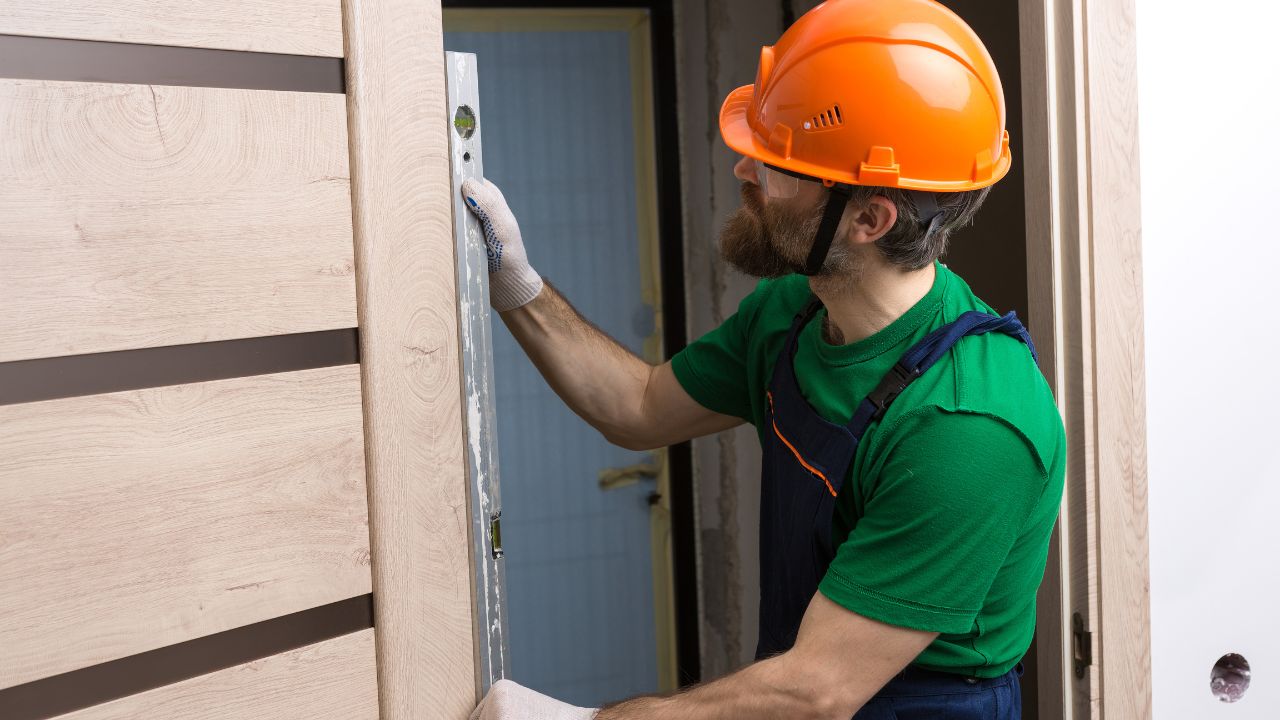- Homepage
- Electrical
The Role of Electrical Contractors in Smart Building Projects
Leading provider of electrical installation services
Smart buildings are revolutionizing the construction industry, integrating advanced technologies to create energy-efficient, responsive, and user-friendly environments. From automated lighting systems to IoT-enabled HVAC controls, these structures rely on sophisticated electrical systems to function seamlessly. Electrical contractors are at the heart of this transformation, providing the expertise needed to design, install, and maintain the electrical infrastructure that powers smart building technology. This guide details how electrical contractors contribute to smart building projects, ensuring efficiency, safety, and compliance while driving innovation.

Designing and Installing Smart Electrical Systems
Electrical contractors are responsible for designing and installing the electrical backbone that supports smart building technologies, ensuring reliable performance.
Why It Matters: Smart buildings require complex wiring and power systems to support devices like smart meters, automated lighting, and security systems, all of which demand precise installation to function correctly.
How They Contribute:
- Customized Design: Contractors create tailored electrical plans, accounting for load requirements of IoT integration, sensors, and control systems.
- High-Capacity Wiring: They install robust wiring (e.g., Cat6 or fiber optic cables) to support high-speed data transfer for smart devices.
- Power Distribution: They ensure electrical panels and circuits can handle the increased demand of smart systems, preventing overloads.
Example: An electrical contractor designs a power distribution system for a smart office, supporting automated lighting and HVAC controls, ensuring seamless operation for 500 employees.
Consequence of Poor Execution: Inadequate wiring or overloaded circuits can cause system failures, costing $5,000-$20,000 in repairs and downtime.
Cost Estimate: Smart system installation costs $10,000-$50,000, depending on building size, but enhances efficiency and value.
Pro Tip: Engage contractors early in the design phase to align electrical plans with smart technology requirements.
90% More Chances to Win Electrical Projects with Our Estimate
Ensuring Electrical Code Compliance
Smart buildings must adhere to stringent electrical codes, and contractors ensure all installations meet local, state, and national standards.
Why It Matters: Non-compliance can lead to failed inspections, fines, or safety hazards, delaying smart building projects and increasing costs.
How They Contribute:
- Knowledge of Codes: Contractors are well-versed in the National Electrical Code (NEC) and local regulations, ensuring compliance for smart systems like energy management systems or building automation.
- Permit Management: They secure permits ($50-$500) and coordinate with inspectors, streamlining approvals.
- Safety Protocols: They implement grounding, surge protection, and fire-resistant wiring to protect smart devices and occupants.
Example: A contractor ensures a smart hotel’s electrical panel complies with NEC standards, passing inspections and avoiding a $10,000 retrofit.
Consequence of Non-Compliance: Code violations can delay projects by 2-6 weeks and cost $2,000-$15,000 in corrections.
Pro Tip: Verify the contractor’s licensing and code expertise to ensure compliance from the start.
Integrating IoT and Building Automation Systems
Electrical contractors are key to integrating IoT devices and building automation systems (BAS), enabling smart buildings to function intelligently.
Why It Matters: IoT integration and BAS control lighting, HVAC, and security through centralized platforms, requiring precise electrical setups to ensure connectivity and reliability.
How They Contribute:
- Device Installation: They install sensors, smart thermostats, and connected lighting systems, ensuring proper wiring and power supply.
- Network Connectivity: They set up low-voltage wiring (e.g., Ethernet or PoE) to connect IoT devices to central control systems.
- System Testing: They verify that all devices communicate effectively with the BAS, troubleshooting issues like signal interference.
Example: A contractor integrates IoT-enabled lighting in a smart office, reducing energy costs by 30% and enhancing occupant comfort.

Consequence of Poor Integration: Faulty connections can disrupt smart systems, costing $1,000-$10,000 to fix and affecting building performance.
Cost Estimate: IoT integration costs $5,000-$25,000, depending on system complexity, but boosts efficiency and appeal.
Pro Tip: Choose contractors with experience in low-voltage systems and IoT protocols for seamless integration.
Implementing Energy Management Systems
Electrical contractors install and configure energy management systems (EMS) to optimize power usage, a cornerstone of smart buildings.
Why It Matters: EMS reduce energy costs by monitoring and controlling consumption, appealing to eco-conscious owners and tenants while lowering utility bills.
How They Contribute:
- Smart Meter Installation: They install meters to track real-time energy usage, integrating with EMS software.
- Automated Controls: They set up systems to adjust lighting, HVAC, and appliances based on occupancy or time, maximizing efficiency.
- Renewable Integration: They connect solar panels or battery storage systems to EMS, supporting sustainable energy goals.
Example: A contractor installs an EMS in a commercial building, cutting energy bills by $10,000 annually and increasing property value by 5%.
Consequence of Inefficient Systems: Poorly installed EMS can fail to deliver savings, wasting $2,000-$5,000 in setup costs.
Cost Estimate: EMS installation costs $5,000-$20,000 but saves 20-40% on energy costs annually.
Pro Tip: Ask contractors for case studies of past EMS projects to confirm their expertise.
Get High-Quality 3D Rendering Today!
Transform your space with stunning 3D rendering that blends style, comfort, and functionality.
We Specialize in Both Residential and Commercial 3D Rendering Projects.
- Luxury Villas
- Apartment Complexes
- Modular Kitchens
- Bathrooms
- Office Buildings
- Shopping Malls
- Hospitals
- Hotels & Resorts
Coordinating with Other Trades
Electrical contractors collaborate with other trades—plumbers, HVAC technicians, and carpenters—to ensure smart systems integrate seamlessly, keeping projects on schedule.
Why It Matters: Smart buildings require synchronized efforts, as electrical systems interact with plumbing (e.g., smart water heaters) and HVAC (e.g., automated controls), and poor coordination can cause delays.
How They Contribute:
- Cross-Trade Planning: They align wiring installation with plumbing or HVAC layouts to avoid conflicts, such as conduits blocking ductwork.
- Project Management Support: They provide timelines and updates to general contractors, ensuring electrical work doesn’t delay other tasks.
- Conflict Resolution: They address issues like space constraints for smart device wiring, preventing rework.
Example: A contractor coordinates with HVAC technicians to install wiring for smart thermostats, keeping a residential project on a 6-month timeline.
Consequence of Poor Coordination: Misalignment can delay projects by 1-4 weeks, increasing costs by $5,000-$20,000.
Pro Tip: Include electrical contractors in daily site meetings to maintain seamless trade coordination.
Providing Maintenance and Support for Smart Systems
Electrical contractors offer ongoing maintenance and support to ensure smart building systems remain reliable, enhancing long-term value.
Why It Matters: Smart systems require regular updates and maintenance to prevent issues like connectivity failures or energy inefficiencies, ensuring occupant satisfaction.
How They Contribute:
- Preventive Maintenance: They schedule regular checks on smart meters, sensors, and control systems to prevent downtime.
- System Updates: They update BAS software or IoT firmware to maintain compatibility and security.
- Emergency Services: They provide 24/7 support for issues like power outages or system failures, minimizing disruptions.
Example: A contractor’s annual maintenance plan for a smart office’s EMS prevents a $3,000 repair by catching a faulty sensor early.

Consequence of Neglecting Maintenance: System failures can cost $1,000-$10,000 to repair and reduce building efficiency.
Cost Estimate: Maintenance contracts cost $500-$2,000/year but save thousands by preventing major issues.
Pro Tip: Request a maintenance schedule from your contractor to keep smart systems running smoothly.
Enhancing Safety and Security Systems
Electrical contractors install and integrate smart safety and security systems, such as automated fire alarms and surveillance, critical for occupant protection.
Why It Matters: Robust safety systems enhance building appeal and compliance, reassuring owners and tenants while preventing costly incidents.
How They Contribute:
- Smart Fire Alarms: They install connected alarms that alert occupants and authorities instantly, integrating with BAS.
- Security Systems: They set up smart cameras and access controls, ensuring reliable power and connectivity.
- Emergency Lighting: They install backup power for smart lighting, ensuring safety during outages.
Example: A contractor installs smart fire alarms in a commercial building, meeting code requirements and increasing tenant trust, boosting lease rates by 5%.
Consequence of Poor Installation: Faulty safety systems can lead to fines or accidents, costing $5,000-$50,000 in repairs or liability.
Cost Estimate: Safety system installation costs $2,000-$15,000 but enhances building value and compliance.
Pro Tip: Ensure contractors test safety systems thoroughly before project completion.
Get 5 New Projects in the Next 7 Days With Our System
Additional Contributions of Electrical Contractors
- Future-Proofing: They design systems with scalability to accommodate future smart technologies, reducing upgrade costs.
- Energy Certifications: They align installations with standards like LEED, increasing property marketability.
- Training Clients: They educate owners on using smart systems, ensuring optimal performance and satisfaction.
Conclusion
Electrical contractors are indispensable in smart building projects, delivering the expertise needed to design, install, and maintain advanced electrical systems. From integrating IoT devices and energy management systems to ensuring electrical code compliance and coordinating with other trades, they drive efficiency, safety, and innovation. Their work not only keeps projects on time and budget but also enhances building value and occupant comfort.
For developers and property owners, partnering with skilled electrical contractor services is a strategic investment. While costs for smart system installations range from $5,000-$50,000, the benefits—energy savings, compliance, and marketability—far outweigh the expense. Choose licensed contractors with smart building experience, involve them early, and leverage their expertise to create cutting-edge, future-ready structures. With the right electrical contractor, your smart building project will shine as a model of efficiency and innovation.
Professional Contractor For Your Project?
Frequently Asked Question
Electrical contractors design, install, and maintain the advanced electrical systems that power smart buildings, including IoT integration, energy management systems, and automated controls.
Smart buildings rely on complex electrical infrastructure for safety, efficiency, and connectivity. Without skilled electrical contractors, systems like automated lighting, HVAC, and security cannot function properly.
They follow the National Electrical Code (NEC) and local regulations, obtain permits, and implement safety protocols such as surge protection, grounding, and fire-resistant wiring.
They install IoT-enabled devices, smart meters, automated lighting systems, connected HVAC controls, energy management systems, and advanced safety and security solutions.
They collaborate with HVAC, plumbing, and construction teams to ensure electrical systems align with other building components, preventing conflicts and delays.
Comprehensive Trade-Specific Estimates
At Estimate Florida Consulting, we offer detailed cost estimates across all major trades, ensuring no part of your project is overlooked. From the foundation to the finishing touches, our trade-specific estimates provide you with a complete and accurate breakdown of costs for any type of construction project.
Our Simple Process to Get Your Estimate
Upload Plans
Submit your project plans, blueprints, or relevant documents through our online form or via email.
Receive Quotation
We’ll review your project details and send you a quote based on your scope and requirements.
Confirmation
Confirm the details and finalize any adjustments to ensure the estimate meets your project needs.
Get Estimate
Receive your detailed, trade-specific estimate within 1-2 business days, ready for your project execution.



Our Clients & Partners
We pride ourselves on building strong, lasting relationships with our clients and partners across the construction industry.











What Our Clients Say?
We take pride in delivering accurate, timely, and reliable estimates that help contractors and builders win more projects. Our clients consistently praise our attention to detail, fast turnaround times, and the positive impact our estimates have on their businesses.
Estimate Florida Consulting has helped us win more bids with their fast and accurate estimates. We trust them for every project!
















